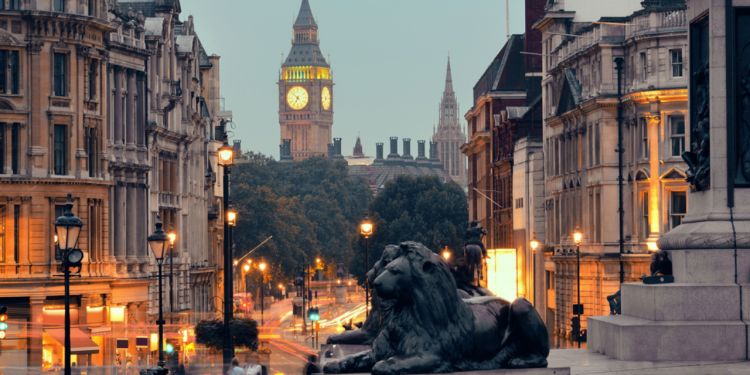
Living in London might be very different to other cities you have lived in. So, even if you are a seasoned expat, you may find it challenging to get used to the London lifestyle. Here's a condensed guide to adjusting to the local culture and the vibrant environment of the city. Whether you are moving to London for work, studies, or as a trailing spouse, here are some useful tips.
Accept the weather as it is: rainy and cold
Talking about the weather is one of the most common conversations Brits have. The sooner you accept the London weather for what it is (damp and cold), the sooner you will feel comfortable and won't let it ruin your day. Make sure to bring warm clothes, a raincoat, and an umbrella with you as London is known to be cold, with a few exceptions during July and August.
Good to know:
October is known as the wettest month, and January is the coldest one.
Cycle and walk in London
Driving in London is impractical and costly. You should be prepared for alternative modes of transportation, which are also more eco-friendly. Londoners' number one choice is the ‘tube' (or the underground), which is fast (when there are no maintenance delays or strikes), but also quite expensive. The red London buses offer a more pleasant travel experience and are more affordable than the tube. On the bus, you can pay by contactless credit or debit card and Oyster. If you want to combine travel with exercise or don't mind being rained upon, try renting a bike. There are more than 12,000 self-service public bikes under the Santander Cycles system. Also known as the ‘Boris bike' due to Boris Johnson introducing them when he served as the mayor of London, the Santander cycles can be rented as from £1.65.
Lastly, London is a very walkable city with huge pavements and efficient traffic signals. The Walk London Network consists of seven routes and is known as one of the largest networks that can be found in a city.
Good to know:
There are 20,000 cycle parking spaces across London. In 2023, cyclists outnumbered the motorists in the City of London.
Useful link:
Be polite, just like Londoners are
You will often hear people say ‘please, thank you and sorry'. Politeness in London is very much present, even if many describe this politeness as “non-genuine” or “formal”. Whether at the supermarket, on the bus, at a local café, the bank, or public service, you will receive a respectful customer's experience. To fit in with the London etiquette and be able to connect with others, be polite during all kinds of public interactions. Speaking about manners, always remind yourself that jumping the queue isn't an option; queues are Londoners' trademark.
Approach London property owners with a positive attitude
As explained in Expat.com's Accommodation in London article, London house hunting in its 32 boroughs can be a draining experience, especially if your budget is limited. However, don't let it define your overall expat experience. Indeed, property owners may not be very flexible or approachable, and money is their biggest motivation. As long as you are aware of your rights and responsibilities as a tenant, you shouldn't have any severe housing issues.
Good to know:
By 2025, renting in London is estimated to be preferred by 60% of Londoners as opposed to having their own property.
Respect the London police
The London police may not look intimidating to some, but this doesn't mean they are not doing their job efficiently or aren't there to help you. The principle of the London police is to be part of the community, meaning officers are even keen on giving directions. Four police forces are present in London. The City of London Police, whose jurisdiction is the one square mile in the financial centre of London; the London Met (also known as ‘Scotland Yard'), whose responsibilities cover the rest of the London Metropolis; the British Transport Police and the Ministry of Defence Police. All forces collaborate when needed and share resources under the Operation Benbow protocol, making them very efficient in civil emergencies, terrorist attacks, football matches, etc.
Good to know:
There are over 900 police officers in London. The officers of the City of London Police and the London Met wear similar uniforms. One way to tell them apart is the badge on their helmet.
Tip:
The City of London Police offers data about crime levels in all areas.
Stop acting like a tourist in London: It's time to become a local
Once you have visited all the free museums, have seen Leicester Square on the weekend, and admired London's panoramic views from Primrose Hill, it's time to start exploring London like a local and find all the hidden gems the city has to offer.
We do our best to provide accurate and up to date information. However, if you have noticed any inaccuracies in this article, please let us know in the comments section below.
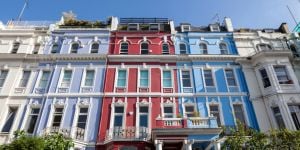
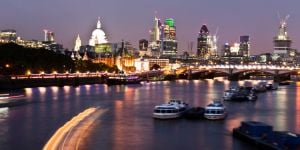
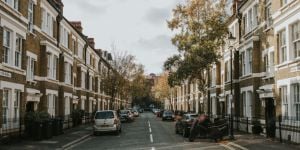
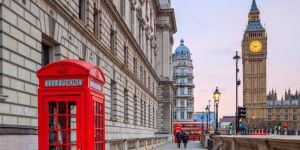

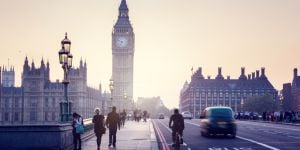






Comments